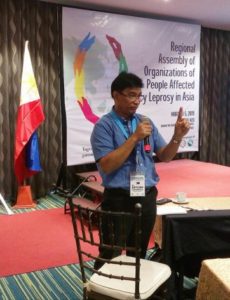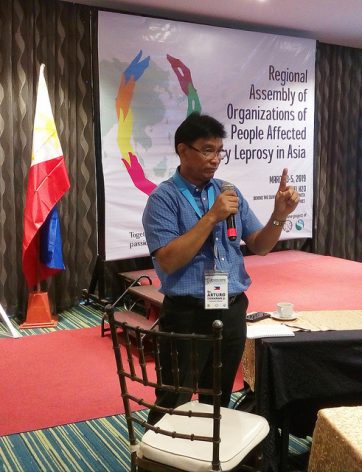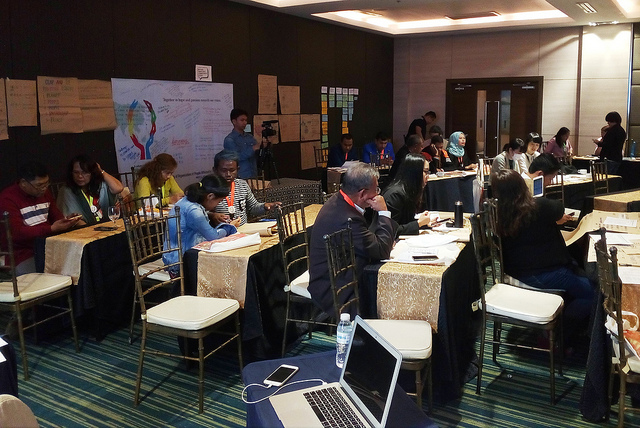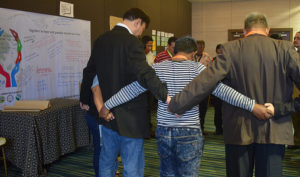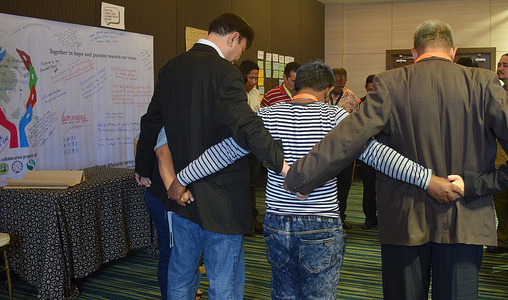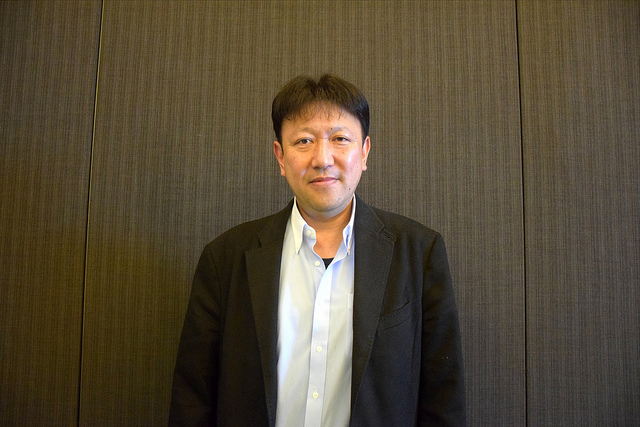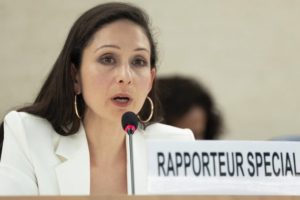
Aid, Asia-Pacific, Civil Society, Conferences, Development & Aid, Featured, Headlines, Health, IPS UN: Inside the Glasshouse, Population, Poverty & SDGs, Regional Categories, Sustainability, TerraViva United Nations, World Social Forum
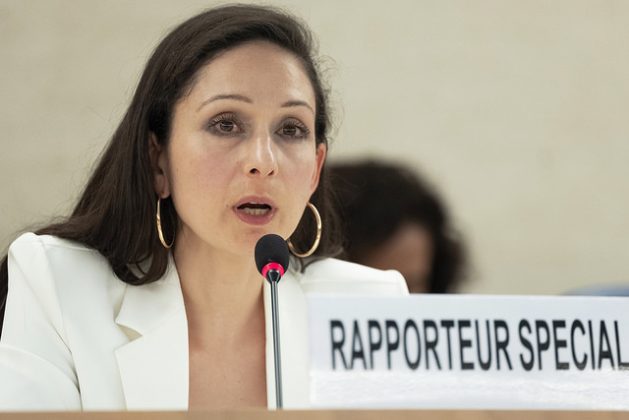
Alice Cruz is the United Nations Special Rapporteur on the elimination of discrimination against persons affected by leprosy and their family members, says divorce on the grounds of leprosy, allowed by laws or not, is a prevailing reality. Credit: U.N. Photo / Jean-Marc Ferré
– Discrimination against women who are affected by leprosy or Hansen’s Disease is a harsh reality, says Alice Cruz is the United Nations Special Rapporteur on the elimination of discrimination against persons affected by leprosy and their family members.
“Divorce on the grounds of leprosy, allowed by laws or not, is a prevailing reality. In settings where women are not economically independent, it can lead to the feminisation of poverty, throwing too many women affected by leprosy into begging or even prostituting,” says Cruz, who was speaking via audio link at Regional Assembly of Organisations of People Affected by Leprosy in Asia that was held in Manila, Philippines. The Sasakawa Memorial Health Foundation/the Nippon Foundation (TNF) which supports leprosy projects across the world sponsored the meeting.
A professor at the Law School of University Andina Simon Boliver in Ecuador, Cruz has extensive knowledge of the social stigma and discrimination faced by the people who are affected by leprosy which also amount to the violation of their human rights.
In an interview to IPS, Cruz speaks of the layers and levels of stigma that men, women and children of leprosy-affected people face and how the U.N. has been trying to end it. Finally, she lists the simple ways that every ordinary person can contribute to end the stigma that people living with leprosy face and how to help them become integral to society. Excerpts of the interview follow:
Inter Press Service (IPS): What is the link between human rights violation and the leprosy-affected people?
Alice Cruz (AC): Throughout history leprosy has become much more than a disease: it became a label, mainly used to exclude. Leprosy came to embody what was socially prescribed as shameful and disrupting. It became a symbol, a powerful metaphor, for everything that should be kept apart, whether it was attributed to punishment for sinful conduct, unregulated behaviour, past offences and socially constructed ideas of racial inferiority, among others harmful myths and stereotypes, which led to massive human rights violations of persons affected by leprosy, but also their family members.
IPS: Can you describe some of the ways the rights of leprosy affected people are violated?
AC: Women, men and children affected by leprosy were, and continue to be in many contexts, denied not only their dignity, but also an acknowledgement of their humanity. It is not a coincidence that it is commonly said that persons affected by leprosy experience a civil death.
They have been consistently subjected to: stigmatising language; segregation; separation from their families and within the household; separation from their children; denial of care; denial of the means of subsistence; denial of a place to live; denial of education; denial of the right to own property; impediments to marry; impediments to have children; restrictions on their freedom of movement; denial of their right to participate in community, public and political life; physical and psychological abuse and violence; compulsory internment; forced sterilisation; institutionalised silencing and invisibility.
There are still more than 50 countries in the world with discriminatory laws against persons affected by leprosy in force.
IPS: What is the UN doing to prevent and end these violations?
AC: In 2010, the General Assembly, in a landmark move, adopted resolution 65/215 and took note of the principles and guidelines on the elimination of discrimination against persons affected by leprosy and their family members. In so doing, it established leprosy as a human rights issue and stressed that persons affected by leprosy and their family members should be treated as individuals with dignity and entitled to all human rights and fundamental freedoms under customary international law, the relevant conventions and national constitutions and laws. In June 2017, the Council adopted resolution 35/9, establishing the mandate of the Special Rapporteur on the elimination of discrimination against persons affected by leprosy and their family members. It called on States and all relevant stakeholders to cooperate with the Special Rapporteur in the discharge of the mandate. I assumed this role on Nov. 1, 2017.
IPS: How far have we come in achieving the 2020 target leprosy eradication?
AC: I am afraid we are very far from such a scenario. By the one hand, eradication of leprosy is not on the horizon given the lack of a vaccine. By the other hand, official reports of around 150 countries to the [World Health Organisation] WHO in 2016 registered more than new 210 000 cases of leprosy, with high incidence among children, which means ongoing transmission.
IPS: How can every ordinary person contribute to eradication of leprosy and ending stigma towards leprosy affected people?
AC: Acknowledging that persons affected by leprosy are the same as everyone else and fighting harmful stereotypes in daily life. Remembering that anyone, including you and me, can come to suffer from any disease or disability and that diversity and dignity in diversity is what makes us humans.

